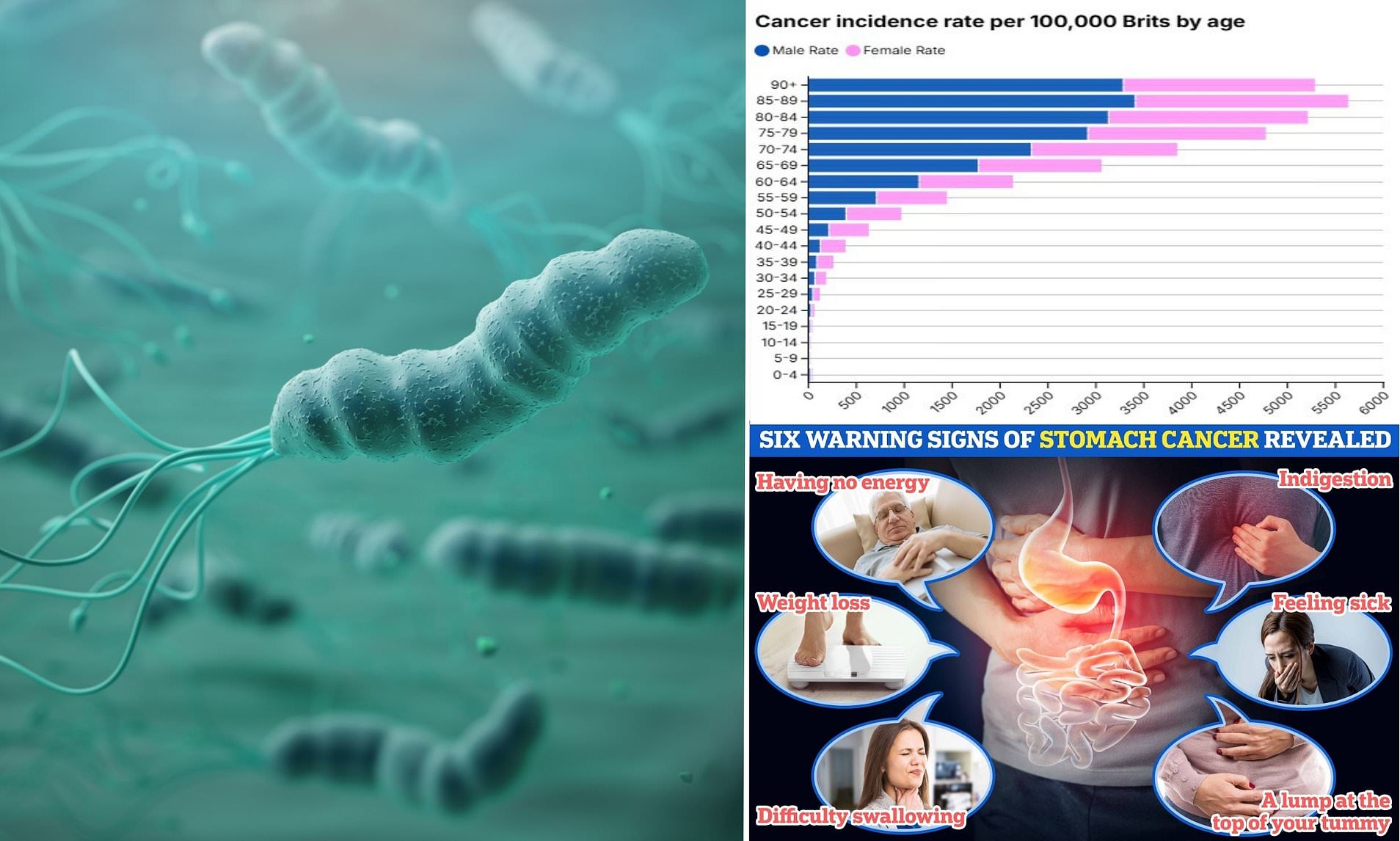
The Silent Threat: Common Bacteria Linked to Millions of Potential Stomach Cancer Cases
A seemingly innocuous bacteria, often responsible for common digestive complaints, is now under scrutiny for its potential role in a significant number of stomach cancer cases worldwide. Scientists are raising concerns about Helicobacter pylori (H. pylori), a bacterium estimated to be responsible for a substantial percentage of stomach cancers globally.
Understanding H. pylori and Its Impact
H. pylori is a bacterium that infects the lining of the stomach. While many individuals infected with H. pylori remain asymptomatic, the bacteria can cause damage to stomach tissue, increasing the risk of developing stomach cancer. Alarmingly, the symptoms of H. pylori infection can be easily mistaken for common ailments like indigestion, bloating, or nausea, making early detection challenging.
A Call for Increased Screening
Experts are advocating for increased screening for H. pylori to identify and treat infected individuals before cancer develops. Testing for the bacteria can be conducted through blood tests, breath tests, or stool samples. Early detection and treatment, typically involving antibiotics, can significantly reduce the risk of developing stomach cancer.
The Global Burden of Stomach Cancer
The International Agency for Research on Cancer (IARC), a part of the World Health Organization, has issued a warning that without intervention, nearly 12 million people born between 2008 and 2017 worldwide are projected to develop stomach cancer due to H. pylori infection. This figure represents a significant proportion of all stomach cancer cases.
The spread of H. pylori is believed to occur through person-to-person contact, often via contaminated food and water, as well as through close contact with infected individuals. Studies have indicated that a considerable percentage of adults are infected with H. pylori, although this number is believed to be decreasing in some regions.
Regional Disparities in Stomach Cancer Incidence
While the majority of the projected stomach cancer cases linked to H. pylori are expected to occur in Asia, significant numbers are also anticipated in other regions. Millions of cases are projected in the Americas and over a million in Europe. This highlights the global nature of the threat posed by H. pylori.
The Link Between H. pylori and Stomach Cancer Risk
Research suggests that infection with H. pylori can increase the risk of developing stomach cancer significantly. However, appropriate treatment with antibiotics can dramatically reduce this risk. The IARC scientists are urging increased investment in population testing for H. pylori to identify silently infected individuals and provide them with necessary treatment.
Prevention Strategies and Lifestyle Factors
While H. pylori is a significant risk factor for stomach cancer, other preventable lifestyle factors also play a crucial role. Public health organizations emphasize the importance of adopting healthy habits to reduce the overall risk of stomach cancer.
These include:
- Smoking Cessation: Quitting smoking is one of the most effective ways to reduce cancer risk.
- Maintaining a Healthy Weight: Obesity is linked to an increased risk of various cancers, including stomach cancer.
- Limiting Alcohol Consumption: Excessive alcohol intake can damage the stomach lining and increase cancer risk.
- Adopting a Balanced Diet: A diet rich in fruits, vegetables, and whole grains can help protect against stomach cancer.
Symptoms and Early Detection
Recognizing the symptoms of stomach cancer is crucial for early detection and treatment. Common symptoms include:
- Heartburn or acid reflux
- Difficulty swallowing
- Nausea or vomiting
- Indigestion and burping
- Feeling full quickly when eating
These symptoms can also be caused by other conditions, but individuals who experience them for more than a few weeks should consult a healthcare professional. Other potential symptoms include loss of appetite, unexplained weight loss, stomach pain, a palpable lump in the stomach, and persistent fatigue.
The Reality of Stomach Cancer Statistics
Stomach cancer remains a serious health concern worldwide. While survival rates have improved in recent years, the prognosis for stomach cancer patients can still be challenging. Early detection and treatment are essential for improving outcomes. Continued research and public health initiatives are crucial for reducing the burden of stomach cancer globally.
0 Response to "Stomach Cancer Epidemic: Hidden Infection Threat"
Post a Comment